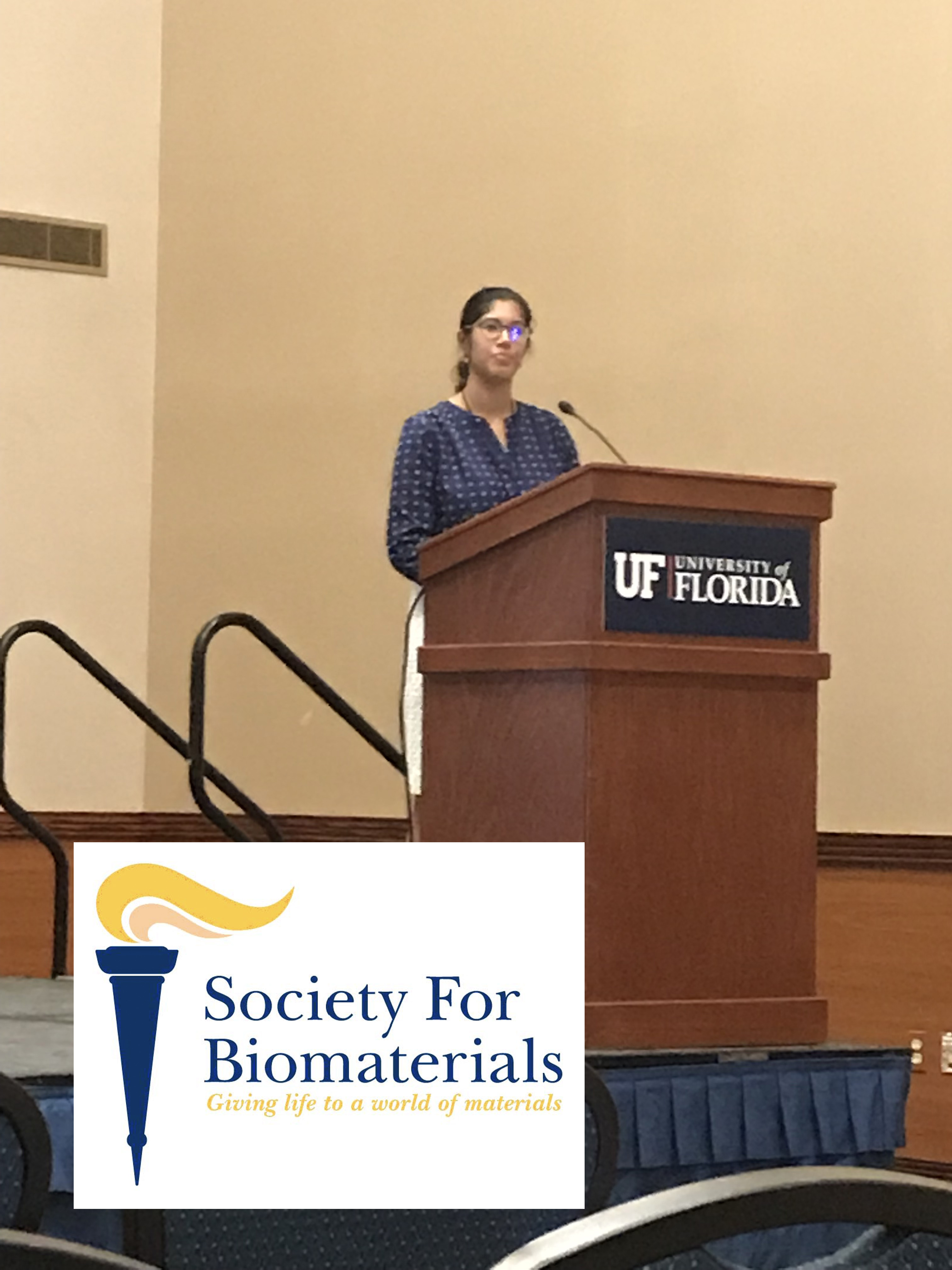Shreedevi Kumar, a first year PhD student in the Sharma Lab, presented her work at the 7th Annual UF Biomaterials Day on February 23rd, 2018. The theme of this year’s Biomaterials Day was “Breaking Barriers in Biomaterials Research.” Shree’s work titled “Manganese dioxide nanoparticles protect cytokine-challenged cartilage from oxidative stress” was one of six student abstracts selected for oral presentation at this inter-disciplinary symposium.
Well done, Shree!
Presentation abstract:
Osteoarthritis (OA) is associated with chronic low-grade inflammation whereby oxidative stress leads to chondrocyte death, extracellular matrix degradation, and pain. The overall goal of this research is to develop strategies to scavenge reactive oxygen species (ROS) in cartilage in order to modulate joint inflammation. We hypothesized that MnO2 nanoparticles (MnO2-NP) which degrade hydrogen peroxide (H2O2) will protect cartilage from inflammation-induced oxidative stress. The synthesized polyethylene glycol-stabilized MnO2-NPs were 10nm in size and positively charged. The NPs effectively scavenged H2O2, with 5ug/mL MnO2-NPs neutralizing 55% of 100uM H2O2. Chondrocytes in monolayer showed uptake of MnO2-NPs without cytotoxicity. In ex vivo cartilage explants, the MnO2-NPs penetrated through the depth of the biopsies and were retained within the tissue matrix. In cytokine-challenged cartilage explants, supplementation with MnO2-NPs decreased nitric oxide production by 80% (p < 0.0001) and reduced glycosaminoglycan loss by 55% (p<0.01) compared to controls. After in vivo injection in rat articular joints, Alexa 750 labelled MnO2-NPs displayed a linear decline (R2 = 0.95) in fluorescent signal with time with 63% of the initial amount of NPs remaining in joints 11 days post-injection. Given their joint retention time and ROS scavenging capacity, these NPs could target oxidative stress mechanisms to treat or prevent OA.
